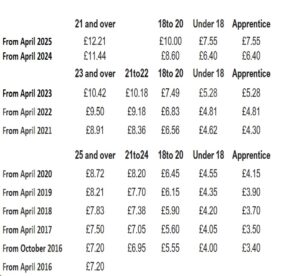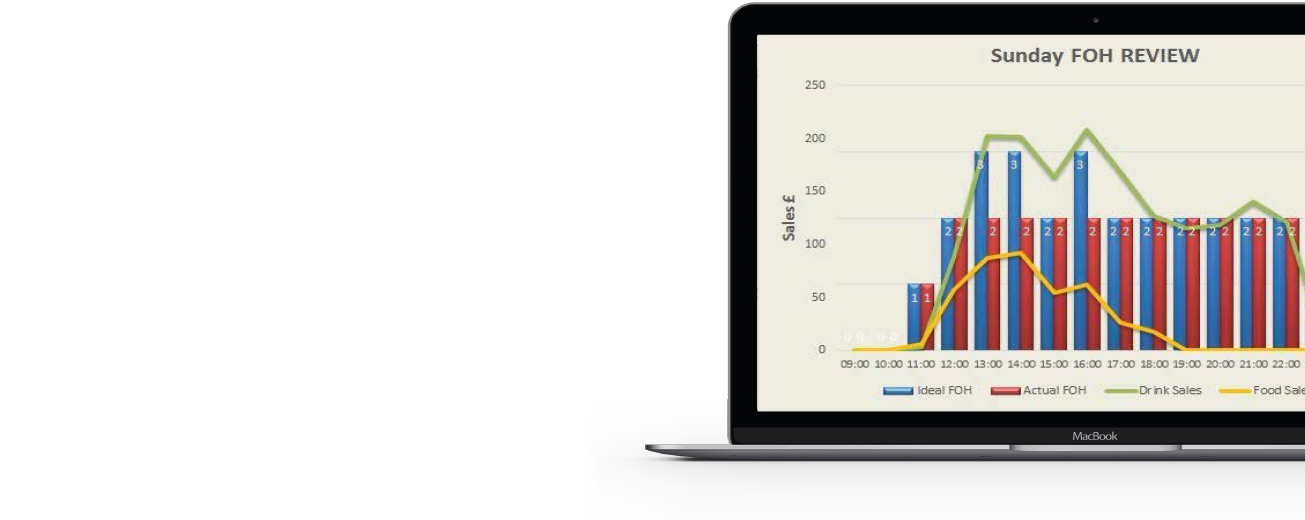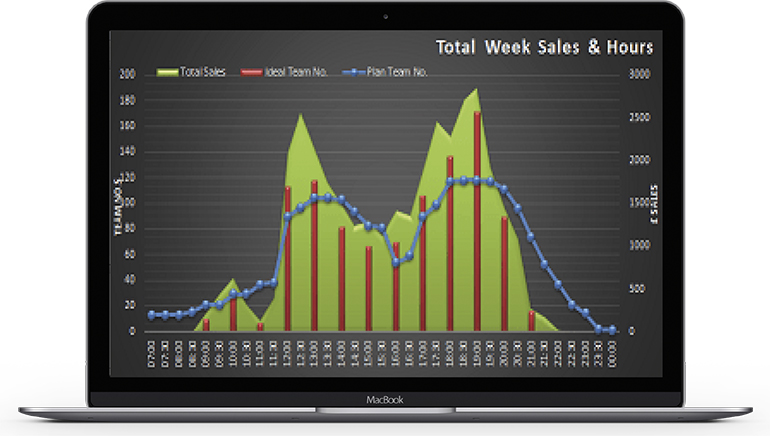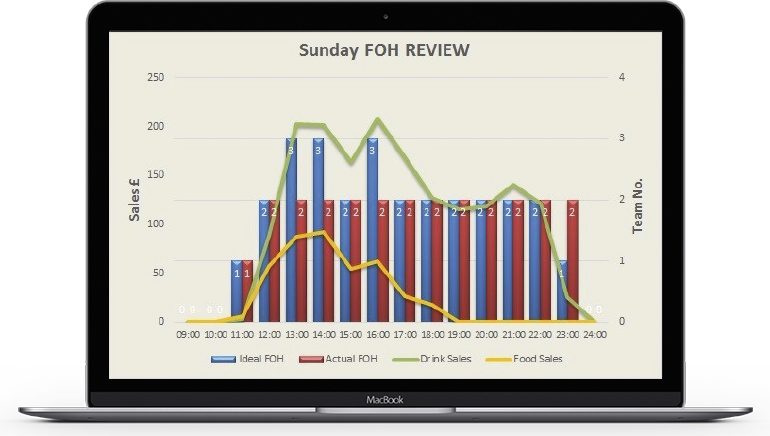Below are essential details covering Pay Rates, Break Entitlements and Holiday Pay
Pay Rates
Details taken from www.gov.uk
National Minimum Wage and National Living Wage rates
The hourly rate for the minimum wage depends on your age and whether you’re an apprentice.
You must be at least:
- school leaving age to get the National Minimum Wage
- aged 21 to get the National Living Wage – the minimum wage will still apply for workers aged 21 and under
Current Pay rates
These rates are for the National Living Wage and the National Minimum Wage from 1 April 2016 to April 2026

National Living Wage rates change every April
Apprentices
Apprentices are entitled to the apprentice rate if they’re either:
- aged under 19
- aged 19 or over and in the first year of their apprenticeship
Example An apprentice aged 21 in the first year of their apprenticeship is entitled to a minimum hourly rate of £7.55
Apprentices are entitled to the minimum wage for their age if they both:
- are aged 19 or over
- have completed the first year of their apprenticeship
Example An apprentice aged 21 who has completed the first year of their apprenticeship is entitled to a minimum hourly rate of £12.21
Break Entitlement
These details are from the government website www.gov.uk/rest-breaks-work/overview
Workers over 18 are usually entitled to 3 types of break – rest breaks at work, daily rest and weekly rest.
Rest breaks at work
Workers have the right to one uninterrupted 20 minute rest break during their working day, if they work more than 6 hours a day. This could be a tea or lunch break.
The break doesn’t have to be paid – it depends on their employment contract.
Daily rest
Workers have the right to 11 hours rest between working days, eg if they finish work at 8pm, they shouldn’t start work again until 7am the next day.
Weekly rest
Workers have the right to either:
- an uninterrupted 24 hours without any work each week
- an uninterrupted 48 hours without any work each fortnight
Young workers
Young workers (above school leaving age and under 18) are usually entitled to:
- a 30 minute rest break if they work more than 4.5 hours (if possible this should be one continuous break)
- daily rest of 12 hours
- weekly rest of 48 hours
Holiday pay
These details are from the government website www.gov.uk/holiday-entitlement-rights
Almost all workersare legally entitled to 5.6 weeks’ paid holiday a year (known as statutory leave entitlement or annual leave).
This includes:
- agency workers
- workers with irregular hours
- workers on zero-hours contracts
An employer can include bank holidays as part of statutory annual leave.
Statutory annual leave entitlement
Most workers who work a 5-day week must receive at least 28 days’ paid annual leave a year. This is the equivalent of 5.6 weeks of holiday.
Working part-time
Part-time workers are entitled to at least 5.6 weeks’ paid holiday, but this will amount to fewer than 28 days.
For example, if they work 3 days a week, they must get at least 16.8 days’ leave a year (3 × 5.6).
Irregular hours
People working irregular hours (like shift workers or term-time workers) are entitled to paid time off for every hour they work.
Limits on statutory leave
Statutory paid holiday entitlement is limited to 28 days. For example, staff working 6 days a week are only entitled to 28 days’ paid holiday.
Bank holidays
Bank or public holidays do not have to be given as paid leave.
An employer can choose to include bank holidays as part of a worker’s statutory annual leave.



